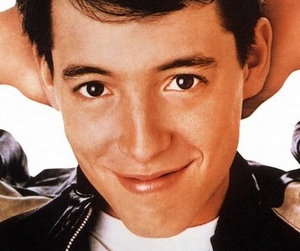Writing and marketing. What YOU want.
Last week, I asked the kids on Facebook what they are burning to know about this thing we call writing. Questions came up about marketing and promoting, the pitfalls of a first-time author, self-publishing, building a fan base, and the time it takes to see substantial web traffic for your blog or website.
Not one of them asked about words. Anyone else find this ironic?
Every day, I read hundreds of posts and tweets about writers’ block, not having time to write, and the fear of doing it wrong – to name a few obstacles. But you want to know how to market. Who am I to judge?
Luckily, the answer to writing well and marketing and promotion are exactly the same: In all cases, just be yourself.
We stand out by being unique. Nowhere is this more true than on the internet, where billions of people pimp themselves and their work every day – particularly authors. So how do you gain recognition in a pool that large? By being you.
Think about it. By default, no one on this planet is like you. Each of us has our own experiences, emotions, opinions, appearance – genetic code for chrissakes. No two people are the same. So use that. Show people who you are.
I’m sarcastic, brash and vulgar. That’s no gimmick. (Believe me, no one wishes it were more than my mother.) I am a product of all my combined experiences. And I have no problem showing you who I am.
So who are you? Take that and build your author platform, website, blog, whatever. (Yes, you should use social media. If no one can find you, you won’t have an audience. But don’t make it harder than it has to be.)
As for good writing – the shit people actually care about when reading a book – the solution is the same. We don’t give a rat’s sweet ass how anyone else does it. You write your way and I write mine. It’s the same principle as marketing. No one is just like you. Therefore, as Michael Xavier says, no one can tell the story like you. More about that here.
I understand how easy it is to get stuck thinking about how things should be. Of how we want to be perceived. The problem with trying to write like someone else – or build a persona like someone else – is it’s not sustainable. You can’t do it for long. And why would you want to anyway? You are not Stephen King. I am not Mark Twain. But that doesn’t mean we don’t have valuable messages to share.
So when you’re writing, ask yourself questions to keep you from trying to be someone else. Would my best friend walk away if I read this to him? Do I believe in what I am saying? Does this sound like me?
Because generic sucks.
If you think you’re not good enough, you’re hardly alone. It is true that someone will always be better. Someone will always be smarter. Someone will always be more eloquent. But they will never be YOU.
 Fact: YOU are different from everyone else.
Fact: YOU are different from everyone else.
Fact: YOU have a story to tell that no one else can tell in the same way.
Fact: YOU can use both of those things to fulfill your writing dreams.
Want more? Subscribe to this site in the upper right hand corner and I’ll send you a free copy of my book, “A Writer’s Voice. What it is. Why it matters. And how to develop yours.”
• • •
If you need help polishing a work in progress, hammering out a novel or writing any other random thing at all, consider this: The world has too many people who say you can’t. I say you can and you will, and then I’ll show you how.

